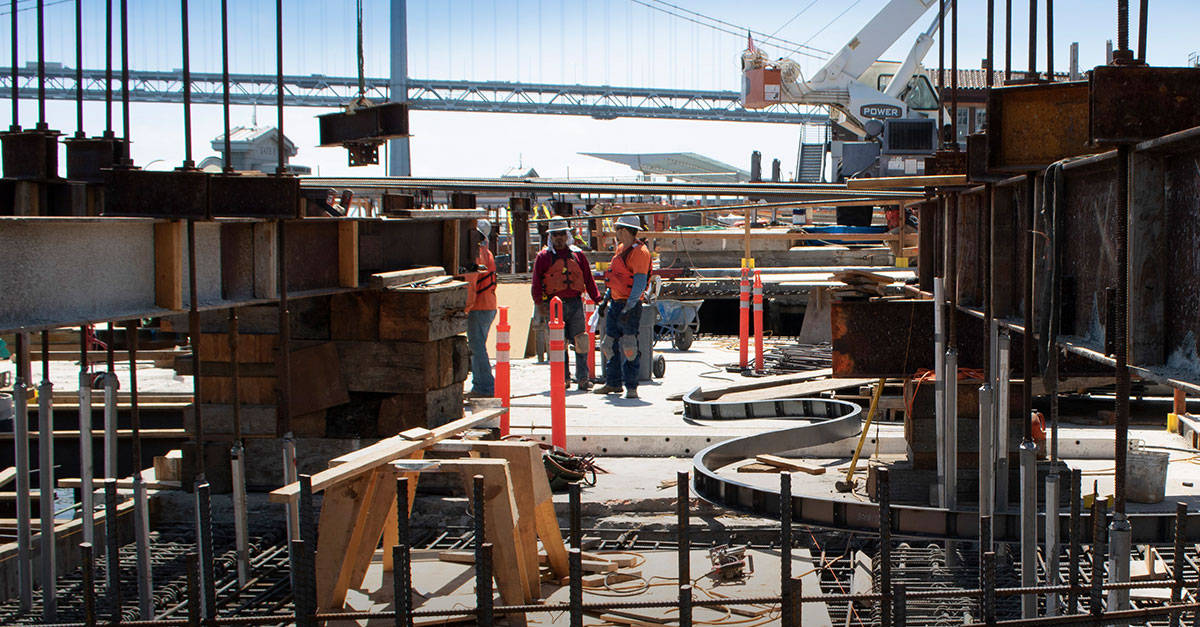Construction Internships: A Complete Guide

It’s been almost ten years since I completed my first internship. I did it not to gain course credits or impress my teachers, but to gain on-the-job experience I couldn't get in the classroom.
Like most, construction internships come in a variety of shapes and sizes. Depending on where your interests lie, you could find yourself splitting time between the field and the office, watching construction projects evolve before your very eyes, or helping design teams make dreams become realities.
However, no matter the size or shape of your internship, the rewards will be the same. But, before we jump into that, what is a construction internship?
What is a construction internship?
Unlike a construction apprenticeship, a construction internship, in most cases, is for undergraduate students eager to learn specific skills or gain work experience in a particular field, including:
- Civil engineering, where you can learn about the design, construction, and maintenance of the physical and naturally built environment.
- Sustainable construction, where you’ll learn to design and build in a way that is environmentally responsible and resource-efficient.
- Construction management, where you learn about the role of a construction manager and the work that goes into executing a construction project on time and on budget.
How long is a construction internship?
A construction internship can be anywhere from one week to three months or one week every three months for a year. There are no set timelines or requirements; the time period is based on the type of internship you’re applying for and is usually set by the employer.
As an intern, you are not bound to work for the employer after your internship is complete, though many do. According to the NACE 2019 Internship & Co-op Survey, almost 60 percent of interns become full-time hires where they've interned.
If conversion to part-time or full-time employment isn’t on offer as part of your internship, ask your employer to consider the possibility once they see how passionate and hard-working you are. Even if there is no formal internship program, offer your services on a schedule that works for you — without impacting schoolwork or other commitments.
The benefits of an internship in construction
A construction internship is the best way to get a taste for construction without making any long-term commitments. This is why students interested in a career in construction do internships — to figure out what field they want to work in post-graduation.
Construction internships allow you to explore a career path, develop new skills, build professional relationships, and gain confidence, all while getting paid (in some cases). Let me explain...
An internship may or may not be paid. After all, you’re there to gain knowledge and experience, not money. Despite this, NACE reports that the average hourly wage for an intern in 2019 is $19.05; the highest reported hourly wage in history.
While an internship may not provide any formal industry qualifications, it will set you apart from other candidates when applying for jobs. Most construction jobs require applicants to have previous industry experience, which is pretty hard unless you’ve completed an internship. If you have an internship under your belt, you may also receive a higher starting wage than those who have no experience at all.
Where to find construction internships
Most leading construction firms offer internship programs. Bechtel, one of the most respected engineering, construction, and project management companies in the world, posts their internships online — check out Bechtel's internship opportunities!
If you’re dying to intern for a specific construction company but don't see any internships advertised on their website, reach out and express your interest. Try emailing the company directly or connect with them on LinkedIn. Most people will be thrilled to hear you want to offer your services to them!
Sometimes looking offline is just as worthwhile. Keep an eye out for notices on student job boards and ask your professor or classmates if they know of any upcoming opportunities. That’s how I found my first internship!
What to look for in an internship
Unfortunately, interns are sometimes under-utilized and even bored if they’re not proactive. To ensure you’re getting the most out of your construction internship, ask about the following things when applying:
- An assigned mentor. It’s important to have someone you can shadow, learn from, and approach with any questions or concerns should they arise.
- A diverse task list. To fully understand the construction industry, you need to be assigned a wide range of tasks, both in the field and at the office. You may decide against a career in construction if all you do is update RFIs from behind a desk, day in, day out.
- A seat at the table. Interns should be welcomed into an office and treated like a regular employee. For example, you should be interviewed for your intern position, invited to present at meetings, and have your work reviewed. This goes a long way in making sure you feel responsible, motivated, and excited to learn more.
If you’re eager to immerse yourself in the world of construction technology, we’d love to hear from you!
At Fieldwire, we value our interns and on-the-job training as much as we do our customers. In the past, we’ve had members of the Navy intern at our headquarters as part of the U.S. military’s innovation initiatives. You can read all about it on our blog!

 Tara Callinan •
Tara Callinan • 
















